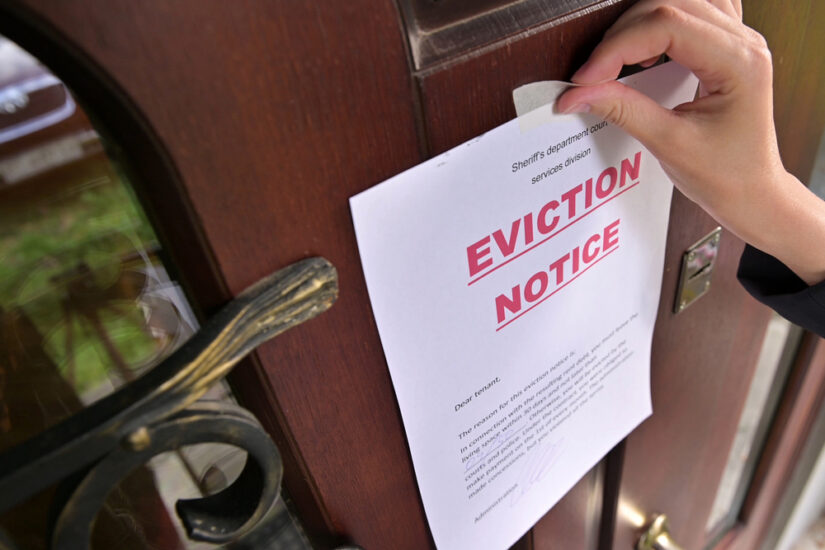How an Eviction Attorney Miami Can Shield Your Lessee Rights
What Are the Common Instances Managed by an Eviction Lawyer in Occupant Disputes?
Expulsion attorneys play a critical role in resolving an array of renter conflicts that can occur in rental contracts. Common cases consist of non-payment of lease, lease offenses, and wrongful eviction claims, to name a few. These professionals browse complicated lawful structures to represent both lessees and property managers, making certain that all events understand their civil liberties and commitments. The details of each case can significantly influence the result, questioning regarding the efficiency of legal techniques employed. Comprehending the subtleties of these disputes can light up the more comprehensive implications for renter legal rights and proprietor responsibilities. What might these implications disclose concerning the housing landscape?
Non-Payment of Lease
Non-payment of rent is a prevalent problem that can cause complex lawful disagreements between landlords and lessees. When lessees stop working to pay their rent on schedule, proprietors may face financial stress, prompting them to initiate legal proceedings. The eviction process generally starts with a created notice, demanding payment within a defined timeframe. The property owner may file for eviction in the suitable court. if the lessee does not comply.
In lots of territories, the legal structure bordering non-payment of rental fee is developed to secure both celebrations. Tenants may have defenses available, such as declaring uninhabitable living conditions or incorrect notice. However, property owners should abide by strict treatments mandated by law, including providing ample notice and filing the required paperwork (eviction attorney miami).
An expulsion attorney plays a crucial function in browsing these conflicts. For renters, legal representation can offer insight right into possible defenses and assist negotiate desirable outcomes.
Lease Violations
Lease infractions represent a considerable issue in landlord-tenant partnerships, as they can cause disputes and potential expulsion proceedings. These offenses occur when occupants stop working to stick to the terms outlined in their lease agreements. Usual examples include unapproved subletting, failing to keep cleanliness, keeping family pets without consent, or participating in turbulent habits that affects other occupants.
Landlords have a legal obligation to address these offenses immediately - eviction attorney miami. Usually, they will certainly provide a written notification to the occupant, describing the particular violation and giving a specified timeframe for rectification. If the occupant fails to comply, the landlord might start expulsion procedures, which commonly necessitates lawful treatment
Expulsion lawyers play a critical function in these circumstances by making sure that the eviction process abides by local legislations and guidelines. They can help landlords in collecting needed evidence, preparing files, and representing them in court. Additionally, tenants facing allegations of lease violations might seek legal advice to dispute the claims or work out terms to stay clear of expulsion. Understanding the subtleties of lease infractions is crucial for both parties, as it aids preserve a fair and legal rental atmosphere.
Wrongful Expulsion Cases
Wrongful eviction cases are a vital element of landlord-tenant law, dealing with situations where a tenant is eliminated from a rental residential property without legal validation. Such claims normally occur when property managers fall short to follow appropriate lawful procedures during the expulsion procedure, consisting of not providing the called for notice or conducting evictions without a court order.
The legal structure bordering wrongful expulsion differs by territory yet typically offers renters with the right to oppose an expulsion if it lacks a legitimate reason or if due process was not observed. Usual premises for wrongful expulsion claims include vindictive actions by the property owner, eviction based upon inequitable factors, or eviction for factors that break local or state guidelines.
In pursuing a wrongful eviction insurance claim, renters might look for different treatments, including reinstatement to the rental residential property, problems for lost belongings or emotional distress, and lawful charges. An expulsion attorney plays a critical duty in these cases, assisting renters in gathering evidence, navigating court treatments, and promoting for their civil liberties.
Recognizing the nuances of wrongful expulsion cases is essential for click over here both renters and property owners to make certain compliance with the legislation and to secure their corresponding rate of interests within the rental partnership.
Occupant Civil Liberty Issues
Numerous lessees may be not aware of their rights, which can bring about exploitation and unfair therapy by proprietors. Understanding tenant rights is vital for preserving a fair rental relationship and safeguarding oneself from possible abuses. Usual lessee civil liberties consist of the right to a habitable living setting, security versus discrimination, and the right to privacy.
Renters deserve to demand essential repair work and upkeep, and property owners are legitimately obligated to resolve these problems without delay. Furthermore, renters are safeguarded under reasonable real estate regulations, which restrict discrimination based on race, sex, religion, and various other aspects.
In addition, occupants have the right to privacy, meaning landlords can not go into the rental system without correct notice, except in emergency situations. Many occupants are also not aware of their rights concerning safety deposits, consisting of the requirement for proprietors to return deposits within a specific timeframe and provide itemized reductions for any kind of problems.
When conflicts arise over tenant legal rights, an expulsion lawyer can give necessary advice and depiction to aid tenants assert their civil liberties and navigate complex lawful scenarios. Awareness of these civil liberties equips lessees to stand against unjust techniques and safeguard their housing security.
Building Damage Conflicts
Building damage disagreements commonly arise between property managers and tenants, making complex the rental partnership and potentially leading to lawsuit. These disputes commonly focus around insurance claims of damages sustained throughout the tenancy that surpass typical damage. Landlords may seek compensation for fixings they believe are the result of tenant negligence, while tenants may contest such cases, arguing that the problems were pre-existing or a result of variables past their control.

In a lot of cases, arbitration might settle disagreements without resorting to lawsuits, saving both events time and resources. If unresolved, these disagreements can escalate right into eviction process, emphasizing the importance of legal representation in protecting the civil liberties and interests of both landlords and renters.
Verdict
Eviction attorneys play a critical function in dealing with tenant conflicts by resolving numerous typical instances, consisting of non-payment of rent, lease infractions, wrongful eviction insurance claims, occupant civil liberties issues, and home damages conflicts. Their know-how assists in a much better understanding of legal civil liberties and duties for both proprietors and renters. By navigating the intricacies of eviction procedures and advocating for fair treatment, eviction legal representatives contribute dramatically to maintaining justice within this link the rental housing system.
If the lessee does not abide, the property owner may submit for eviction in the appropriate court.

Furthermore, tenants dealing with claims of lease violations might seek lawful advise to oppose the insurance claims or discuss terms to stay clear of expulsion. Landlords may look for compensation for fixings they think are the result of renter neglect, while occupants might challenge such claims, arguing that the damages were pre-existing or an outcome of aspects past their control.
Eviction lawyers play a critical role in fixing tenant disputes by resolving various typical instances, consisting of non-payment of rent, lease offenses, wrongful eviction insurance claims, renter civil original site liberties concerns, and property damages conflicts.